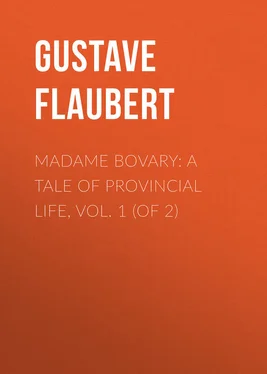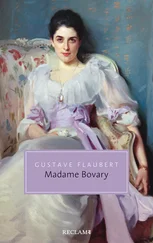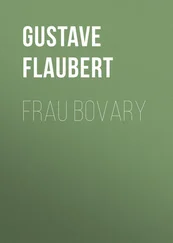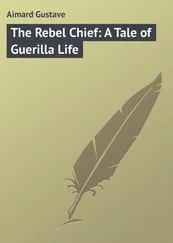Gustave Flaubert - Madame Bovary - A Tale of Provincial Life, Vol. 1 (of 2)
Здесь есть возможность читать онлайн «Gustave Flaubert - Madame Bovary - A Tale of Provincial Life, Vol. 1 (of 2)» — ознакомительный отрывок электронной книги совершенно бесплатно, а после прочтения отрывка купить полную версию. В некоторых случаях можно слушать аудио, скачать через торрент в формате fb2 и присутствует краткое содержание. Жанр: foreign_antique, foreign_prose, на английском языке. Описание произведения, (предисловие) а так же отзывы посетителей доступны на портале библиотеки ЛибКат.
- Название:Madame Bovary: A Tale of Provincial Life, Vol. 1 (of 2)
- Автор:
- Жанр:
- Год:неизвестен
- ISBN:нет данных
- Рейтинг книги:5 / 5. Голосов: 1
-
Избранное:Добавить в избранное
- Отзывы:
-
Ваша оценка:
- 100
- 1
- 2
- 3
- 4
- 5
Madame Bovary: A Tale of Provincial Life, Vol. 1 (of 2): краткое содержание, описание и аннотация
Предлагаем к чтению аннотацию, описание, краткое содержание или предисловие (зависит от того, что написал сам автор книги «Madame Bovary: A Tale of Provincial Life, Vol. 1 (of 2)»). Если вы не нашли необходимую информацию о книге — напишите в комментариях, мы постараемся отыскать её.
Madame Bovary: A Tale of Provincial Life, Vol. 1 (of 2) — читать онлайн ознакомительный отрывок
Ниже представлен текст книги, разбитый по страницам. Система сохранения места последней прочитанной страницы, позволяет с удобством читать онлайн бесплатно книгу «Madame Bovary: A Tale of Provincial Life, Vol. 1 (of 2)», без необходимости каждый раз заново искать на чём Вы остановились. Поставьте закладку, и сможете в любой момент перейти на страницу, на которой закончили чтение.
Интервал:
Закладка:
Gustave Flaubert
Madame Bovary: A Tale of Provincial Life, Vol. 1 (of 2)
CRITICAL INTRODUCTION
Domi mansit, lanam fecit: "He remained at home and wrote," is the first thing that should be said of Gustave Flaubert. This trait, which he shares with many of the writers of his generation, – Renan, Taine, Leconte de Lisle and Dumas fils , – distinguishes them and distinguishes him from those of the preceding generation, who voluntarily sought inspiration in disorder and agitation, – Balzac and George Sand, for instance (to speak only of romance writers), and the elder Dumas or Eugène Sue. Flaubert, indeed, had no "outward life;" he lived only for his art.
A second trait of his character, and of his genius as a writer, is that of seeing in his art only the art itself – and art alone, without the mingling of any vision of fortune or success. A competency, – which he had inherited from the great surgeon, his father, – and moderate tastes, infinitely more bourgeois than his literature, – permitted him to shun the great stumbling-block of the professional man of letters, which, in our day, and doubtless in the United States as well as in France, is the temptation to coin money with the pen. Never was writer more disinterested than Flaubert; and the story is that Madame Bovary brought him 300 francs – in debts.
A third trait, which helps not only to characterise but to individualise him, is his subordination not only of his own existence, but of life in general, to his conception of art. It is not enough to say that he lived for his art: he saw nothing in the world or in life but material for that art, — Hostis quid aliud quam perpetua materia gloriæ? – and if it be true that others have died of their ambition, it could literally be said of Flaubert that he was killed by his art.
It is this point that I should like to bring out in this Introduction, – where we need not speak of his Norman origin, or (as his friend Ducamp has written in his Literary Souvenirs with a disagreeable persistence, and so uselessly!) of his nervousness and epilepsy; of his loves or his friendships, but solely of his work. We know, in fact, to-day, that if all such details are made clear in the biography of a great writer, in no way do they explain his work. The author of Gil Blas , Alain René Lesage, was a Breton, like the author of Atala ; the Corneille brothers had almost nothing in common. Of all our great writers, the one nearest, perhaps, to Jean-Jacques Rousseau, who died a victim to delirium from persecution, was Madame Sand, who had, without doubt, the sanest and best balanced temperament.
Other writers have sought, – for instance, our great classical authors, Pascal, Bossuet and perhaps Corneille, – to influence the thought of their time; some, like Molière, La Fontaine, and La Bruyère, to correct customs. Others still, – such as our romantic writers, Hugo or De Musset, – desired only to express their personal conception of the world and of life. And then Balzac, whose object, – almost scientific, – was to make a "natural history," a study and description, of the social species, as an animal or vegetable species is described in zoology or botany. Gustave Flaubert attempted only to work out his art, for and through the love of art. Very early in life, as we clearly see from his correspondence, his consideration for art was not even that of a social but of a sacred function, in which the artist was the priest. We hear sometimes, in metaphor and not without irony, of the "priesthood" of the artist and the "worship" of art. These expressions must be taken literally in Flaubert's case. He was cloistered in his art as a monk in his convent or by his discipline; and he truly lived only in meditation upon that art, as a Mystic in contemplation of the perfections of his God. Nothing outside of art truly interested him, neither science, nor things political or religious, nor men, nor women, nor anything in the world; and if, sometimes, it was his duty to occupy himself with them, it was never in a degree greater than could benefit his art. "The accidents of the world" – this is his own expression – appeared to him only as things permitted for the sake of description , so much so that his own existence, even, seemed to him to have no other excuse.
It is that which explains the mixture of "romanticism," "naturalism," and I will add, of "classicism" – which has been pointed out more than once in Flaubert's work. Madame Bovary is the masterpiece of naturalistic romance and has not been surpassed by the studies of Zola or the stories of De Maupassant. On the other hand, there is nothing in Hugo, even, more romantic than The Temptation of Saint Antony . But it is necessary to look for many things in romanticism; and the romanticism of Hugo, which was one of the delights of Flaubert, did not resemble that of De Musset, (Lord de Musset, as Flaubert called him) which he strongly disliked. What he loved in romanticism was the "colour," and nothing but the colour. He loved the romanticism of the Orientals, of Hugo and Chateaubriand, that plastic romanticism, whose object is to substitute in literature "sensations of art" for the "expression of ideas," or even of sentiments. It is precisely here that naturalism and romanticism – or at least French naturalism, which is very different from that of the Russians or the English – join hands. In the one case, as in the other, the attempt is made to "represent" – as he himself puts it; and when one represents nothing except the vulgar, the common, the mediocre, the everyday, commonplace, or grotesque, he is a "naturalist," like the author of Madame Bovary ; but one is a "romanticist" when, like the author of Salammbô , he makes this world vanish, and recreates a strange land filled with Byzantine or Carthaginian civilization, with its barbaric luxury, its splendour of corruption, immoderate appetites, and monstrous deities.
We have done wrong in considering Flaubert a naturalist impeded by his romanticism, or a romanticist impenitent, irritated with himself because of his tendency to naturalism. He was both naturalist and romanticist. And in both he was an artist, so much of an artist (I say this without fear of contradiction) that he saw nothing in his art but "representation," the telling of the truth in all its depth and fidelity. Les Fileuses and La Reddition de Bréda are always by Velasquez; but the genius of the painter has nothing in common with the subject he has chosen or the circumstances that inspired him.
From this source proceeds that insensibility in Flaubert with which he has so often been reproached, not without reason, and which divides his naturalism from that of the author of Adam Bede or that of the author of Anna Karenina by an abyss. Honest, as a man, a good citizen, a good son, a good brother, a good friend, Flaubert was indifferent, as an artist, to all that did not belong to his art. "I believe that it is necessary to love nothing," he has written somewhere, and even underscored it – that is to say, it is necessary to hover impartially above all objective points. And, in fact, as nothing passed before his eyes that he considered did not lie within the possibility of representation, he made it a law unto himself to look nothing in the face except from this point of view.
In this regard one may compare his attitude in the presence of his model to that of his contemporaries, Renan, for example, or Taine, in the presence of the object of their studies. With them also critical impartiality resembles not only indifference but insensibility. Not only have they refused to confound their emotions with their judgments, but their judgments have no value in their eyes except as they separate them from their emotions, – as they emancipate themselves from them or even place themselves in opposition to them. In like manner did Flaubert. The first condition of an exact representation of things is to dominate them; and in order to dominate them, is it not necessary to begin by detaching yourself from them? We see dimly through tears, and we are too much absorbed in that which gives us pleasure to be good judges of it. "An ideal society would be one where each individual performed his duty according to his ability. Now, then, I do my duty as best I can; I am forsaken… No one pities my misfortunes; those of others occupy their attention! I give to humanity what it gives to me — indifference! " Is not the link between Flaubert's "indifference" and his conception of art evident here?
Читать дальшеИнтервал:
Закладка:
Похожие книги на «Madame Bovary: A Tale of Provincial Life, Vol. 1 (of 2)»
Представляем Вашему вниманию похожие книги на «Madame Bovary: A Tale of Provincial Life, Vol. 1 (of 2)» списком для выбора. Мы отобрали схожую по названию и смыслу литературу в надежде предоставить читателям больше вариантов отыскать новые, интересные, ещё непрочитанные произведения.
Обсуждение, отзывы о книге «Madame Bovary: A Tale of Provincial Life, Vol. 1 (of 2)» и просто собственные мнения читателей. Оставьте ваши комментарии, напишите, что Вы думаете о произведении, его смысле или главных героях. Укажите что конкретно понравилось, а что нет, и почему Вы так считаете.












